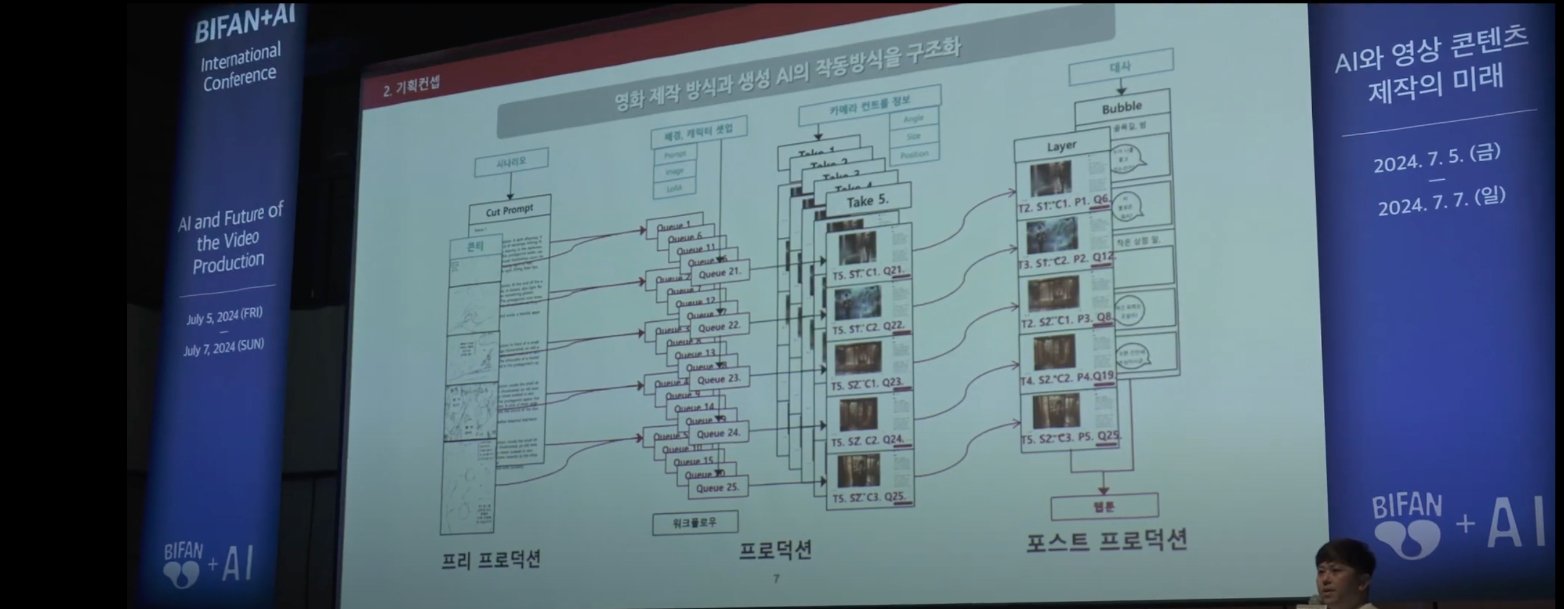BIFAN 2024 Explores AI’s Role in the Future of Filmmaking
The 28th Bucheon International Fantastic Film Festival (BIFAN) hosted an AI conference that delved into the transformative power of generative AI in film and television. Over three days, 25 experts from Korea and abroad converged at the Bucheon Art Center, sharing insights and concerns about this rapidly evolving landscape.
BIFAN+ AI International Conference at BIFAN 2024
A key takeaway was the notion of AI as a "creative partner." Film director KWON Hansl, CEO of generative AI film studio Freewillusion Inc., showcased AI's potential to create "shocking" and "inhuman visuals" that push creative boundaries. He discussed how AI could revolutionize pre-visualization, particularly for complex projects, enabling creators to efficiently communicate complex concepts to investors and distributors.
However, Kwon also highlighted the challenges faced by Korean creators in adopting AI tools due to the lack of Korean-language resources. He stressed the urgency of adapting to this rapidly evolving landscape, stating, "Whether you like AI or not, AI is here, so we need to prepare."
The conference also explored the practical implications of AI's rapid advancement. Kwon noted the "chaotic" nature of the current situation, where today's groundbreaking AI tools may be outdated tomorrow. Dave CLARK, a film director and instructor for Curious Refuge, echoed this sentiment, advising creators to stay up-to-date on the latest advancements while recognizing that core filmmaking principles remain essential.
Day 1 panel discussion. From left to right: Moderator LEE Jinjoon, Panelists: Dave CLARK, KWON Hansl, Matthew NIEDERHAUSER, LEE Seungmoo
Ethical concerns surrounding AI were another prominent theme. The conference addressed the need for clear regulations to prevent the misuse of AI and protect creative freedom. Anna BULAHK, Head of AI Ethics & Partnerships for Respeecher, stressed the importance of "trust, control, and defining creativity." Maciej ZÈMOJCIN, a virtual production producer, predicted the rise of both verified and unverified AI tools, emphasizing the need for industry standards and ethical guidelines.
LEE Seung-moo, Professor in the Department of Film at Korea National University of Arts, raised issues of data bias in AI models, questioning the potential dominance of English and Chinese due to data volume. He also expressed concerns about the impact of AI on future generations of filmmakers, who may grow up relying heavily on AI-driven creation. LEE Dong-ha, CEO and Producer for REDPETER FILMS, acknowledged Korea's slower AI adoption compared to the US, but predicted a rapid shift in the coming year.
One of the most intriguing presentations focused on Deeptoon, an AI-powered webtoon creation tool developed by writer and producer June OH, CEO of Dreamers INC. Deeptoon's ability to transform scripts into webtoons demonstrated AI's potential to streamline production and make content creation more accessible. Oh addressed the challenges of translating creative vision into AI outputs but emphasized the platform's potential for rapid iteration and feedback. He shared that Deeptoon was open for beta testing at a monthly fee of 9,900 Korean Won.
Jun OH of Dreamers INC explains how his Deeptoons platforms uses generative AI to transform scripts into webtoons.
Webtoon images created using Deeptoons.
The conference highlighted both the potential benefits and risks of AI in filmmaking. While AI can enhance efficiency and streamline tasks, speakers cautioned against solely relying on it for creative endeavors. As Zèmojcin noted, while AI can significantly improve the work of amateurs, it's less impactful for professionals who already possess strong creative skills.
The consensus was clear: AI is not simply a trend but a paradigm shift. It has the potential to revolutionize filmmaking,democratize access to tools, and open up new creative possibilities. However, the industry must grapple with the ethical and practical challenges AI presents to ensure its responsible and beneficial use. As the technology continues to evolve,ongoing dialogue and collaboration will be crucial to shaping a future where AI truly serves as a creative partner, not a replacement for human ingenuity.





